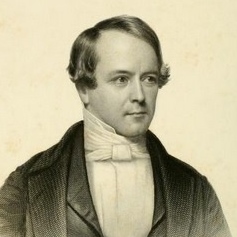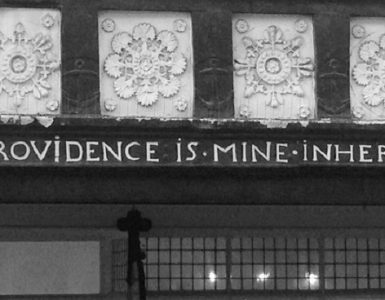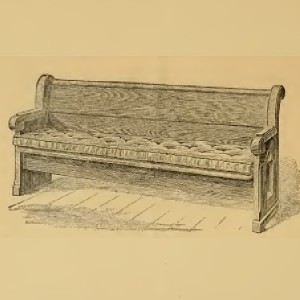 Over the course of the three centuries of American church history there have been many controversies, practices, curiosities, divisions, and struggles. The subject of this article is a practice that was quite common in many churches, but given the clear instruction of Scripture against it, one has to wonder how it continued to be used for so many years. Churches often sold and rented pews in their sanctuaries. The sale of pews raised money for the construction of a new church, and when the cost was covered, excess fees and rents were used to keep the facility in repair. The pew purchaser had a personal reserved seat for services when the new sanctuary was completed. As the years passed and a family gave up its pew for whatever reason, it would then be either sold to another person or household, or the church would retain the pew and either charge rent or make it a free pew. In some cases, the church would hold an annual pew rental season which allowed those with the greatest wealth to bid on the choicest seats in the house and lease them for the following year. Some churches sold or rented all the pews in the sanctuary with the wealthier members sometimes purchasing an extra pew in a select location for visitors and the poor. However, seats for the poor church attendees were not always made available. Churches that did not have a fee system associated with their pews were known as “free churches.”
Over the course of the three centuries of American church history there have been many controversies, practices, curiosities, divisions, and struggles. The subject of this article is a practice that was quite common in many churches, but given the clear instruction of Scripture against it, one has to wonder how it continued to be used for so many years. Churches often sold and rented pews in their sanctuaries. The sale of pews raised money for the construction of a new church, and when the cost was covered, excess fees and rents were used to keep the facility in repair. The pew purchaser had a personal reserved seat for services when the new sanctuary was completed. As the years passed and a family gave up its pew for whatever reason, it would then be either sold to another person or household, or the church would retain the pew and either charge rent or make it a free pew. In some cases, the church would hold an annual pew rental season which allowed those with the greatest wealth to bid on the choicest seats in the house and lease them for the following year. Some churches sold or rented all the pews in the sanctuary with the wealthier members sometimes purchasing an extra pew in a select location for visitors and the poor. However, seats for the poor church attendees were not always made available. Churches that did not have a fee system associated with their pews were known as “free churches.”
One has to wonder what the church officers were thinking when the pew system came about and was perpetuated for so many years given the instruction found in James 2:1-7. The passage is straight forward and its message, as with so much of the book of James, is simple—do not show favoritism in the church. It is a principle that is applicable not only to sanctuary seating, but the entire ministry of the church.
1My brothers, show no partiality as you hold the faith in our Lord Jesus Christ, the Lord of glory. 2For if a man wearing a gold ring and fine clothing comes into your assembly [συναγωγὴ], and a poor man in shabby clothing also comes in, 3and if you pay attention to the one who wears the fine clothing and say, “You sit here in a good place,” while you say to the poor man, “You stand over there,” or, “Sit down at my feet,” 4have you not then made distinctions among yourselves and become judges with evil thoughts? 5Listen, my beloved brothers, has not God chosen those who are poor in the world to be rich in faith and heirs of the kingdom, which he has promised to those who love him? 6But you have dishonored the poor man. Are not the rich the ones who oppress you, and the ones who drag you into court? 7Are they not the ones who blaspheme the honorable name by which you were called? (ESV)
The principle of equitable treatment of those entering the “assembly” expressed by James has its foundation in the Law of God. Two example passages are Leviticus 19:15 and Deuteronomy 1:17, both of which not only condemn showing favoritism to the rich but also rebuke showing favoritism to the poor. It is just as wrong to favor the poor by giving them the best seats in the house as it is to give the rich the better locations.
The commentators differ to some degree regarding the meaning of the Greek word translated “assembly” in the ESV. James’s choice of the word συναγωγὴ is the only example of its use in the New Testament to designate a Christian meeting. Peter H. Davids thinks the “assembly” was a non-worship church meeting, possibly a presbytery or other court; Douglas J. Moo described the “assembly” as “any occasion when Christians would gather and the general populace would be welcome”; J. Alec Motyer found “assembly” to be indicative of a church meeting in which the rich and poor individuals were visitors; and both James B. Adamson and Simon Kistemaker believe it signifies a Christian gathering, but Kistemaker adds that it was a meeting of Jewish Christians. Though there are differing views of what the “assembly” was, whichever interpretation one adopts, the simple truth is that there should be no respect of persons.
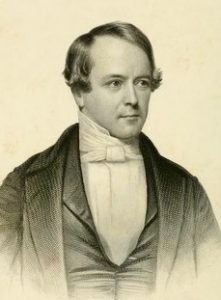 One minister of the past, J. W. Alexander, found the pew fee system a traditional practice that was inappropriate for the church, but especially so because it excluded the poor and visitors. Alexander was particularly concerned for the poor and the many immigrants living in the city of New York. Congested living, low wages, and temptations around every corner motivated him to bring the gospel to the immigrants and rural Americans that had entered the city for work. However, the pew system made it difficult to provide ministry to those in need of the gospel. In Forty Years Familiar Letters of James W. Alexander, he commented to his friend, John Hall, that in 1845 a pew auction raised 35,000.00 of the 80,000.00 needed for building University Place Church in New York, pastored by George Potts. The highest single pew price paid was 1008.00, which is roughly 25-35,000.00 in current dollars.
One minister of the past, J. W. Alexander, found the pew fee system a traditional practice that was inappropriate for the church, but especially so because it excluded the poor and visitors. Alexander was particularly concerned for the poor and the many immigrants living in the city of New York. Congested living, low wages, and temptations around every corner motivated him to bring the gospel to the immigrants and rural Americans that had entered the city for work. However, the pew system made it difficult to provide ministry to those in need of the gospel. In Forty Years Familiar Letters of James W. Alexander, he commented to his friend, John Hall, that in 1845 a pew auction raised 35,000.00 of the 80,000.00 needed for building University Place Church in New York, pastored by George Potts. The highest single pew price paid was 1008.00, which is roughly 25-35,000.00 in current dollars.
Throughout Alexander’s years of ministry in Fifth Avenue Church, he advocated free churches and pews for the poor. He found that some of the pew-owning congregants did not want to give up their privileges to allow for the poor to have free seating. He commented in Forty Years about having a church with no fees.
Daily do I grow more opposed to pews. Free churches are unanimously voted a nuisance by New York Christians, but my mind is unchanged. Free churches have, with us, always been undertaken by poor preachers. If … you and I were to open a free church, it would tell another story; and I am persuaded the only way to effect it will be for individual preachers to lead the way.
Nothing tends to reconcile me any more to pew-property. If Papists did not falsify their theory by their practice, their method of free churches would be noble. Then one could be complacent in a costly church, if thereby “the brother of low degree is exalted” (James 1:9ff).
During Alexander’s ministry in New York, his congregation constructed a new church building on Fifth Avenue at Nineteenth Street, which was completed in 1852. The building was funded entirely by fees raised through the sale of pews. Other pews were left to be rented and ten pews were free. 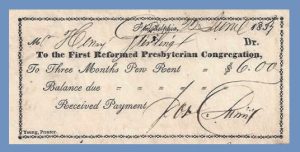 Thus, those who purchased pews were the wealthier members, those who rented were not as prosperous, and the poor or visitors were seated in the ten free pews. At the time of the building’s completion, Dr. Alexander was in the first year of his second call to the church, so it seems his opposition to the pew system had not been very successful. However, he had exercised some influence because during the ministries of his predecessors almost all the pews were held by regularly attending members. Alexander greatly desired the end of the pew financial system, but the influential pew owners were opposed to a truly free church. He commented that he wished he could free up about twenty of the pews owned by the wealthy and fill them with the poor.
Thus, those who purchased pews were the wealthier members, those who rented were not as prosperous, and the poor or visitors were seated in the ten free pews. At the time of the building’s completion, Dr. Alexander was in the first year of his second call to the church, so it seems his opposition to the pew system had not been very successful. However, he had exercised some influence because during the ministries of his predecessors almost all the pews were held by regularly attending members. Alexander greatly desired the end of the pew financial system, but the influential pew owners were opposed to a truly free church. He commented that he wished he could free up about twenty of the pews owned by the wealthy and fill them with the poor.
The pew system continued to be in Dr. Alexander’s thoughts throughout his brief life. In the fall of 1858, just about a year before his death, he preached a special series of services in the Academy of Music. Despite the dismal weather of a New York November, three thousand gathered for the service, but Alexander believed the number would have been twice that if the weather was better. He preached on Revelation 22:17, which was an interesting selection given his concern for free access to churches.
The Spirit and the Bride say, “Come.” And let the one who hears say, “Come.” And let the one who is thirsty come; let the one who desires take the water of life without price” (ESV).
Note the words, “without price.” After reflecting upon the series of services that had been blessed by God, he commented that he wished he “could see a free church to hold just as many, and that would be as easy to speak in.”
J. W. Alexander was greatly concerned for the poor in New York and he rightly perceived that the pew system inhibited the impoverished and strangers from attending church. As he ministered to his congregants of means, he worked not only to bring the poor to Christ but also to eliminate pew fees and sales. For many in the day, the pew system was a tradition that had been continued and because it was a tradition it was accepted. The pew finance system was a blind spot to many of Alexander’s contemporaries; the error of its practice was a subject about which its proponents were ignorant or prejudiced. One of the great tragedies of the pew system was it communicated to the lost world that the rich get better seats than those of lesser means and that despite James’s instruction, God is a respecter of persons. There is nothing wrong with Christians being wealthy, but it is wrong to favor the prosperous because of their financial means.
The application of the lesson learned from Dr. Alexander is obvious. What are the blind spots today? What practices have been accepted simply because they are traditions, because they work to accomplish their ends, or because that is the way they have always been done? It is clear in the Bible that wallets, degrees, and fame are to be left at the door, figuratively speaking, when people enter the church; the wealthy industrialist should be at home in worship seated next to the person who sweeps the floor of his plant. Are there any blind spots in your church? Considering respect of persons, what practices in your church show favoritism to some simply because they have the money to be favored? Churches need to remember the noble Bereans of Acts 17:11 and determine from Scripture whether their traditional practices are appropriate by searching the Scriptures daily and eliminating blind spots.
Barry Waugh
Notes—There are so many variables in calculating purchasing power equivalency that such numbers should be considered a rule of thumb, at best, so the 25 to 35,000.00 value of the 1,008.00 pew is an educated but fair guess. For more about pews read the article on this site titled, “Church Seating,” by clicking HERE. To read a biography of J. W. Alexander on this site, click HERE, and to read about his student woes, click HERE.
Sources—all of the information from J. W. Alexander’s Forty Years Familiar Letters, is from volume 2, pages 39-40, 164, 169, 194, 283. The pages in the commentaries are— Peter H. Davids, 108; Douglas J. Moo, 90; J. Alec Motyer, 81; James B. Adamson, 73; and Simon Kistemaker, 105.


